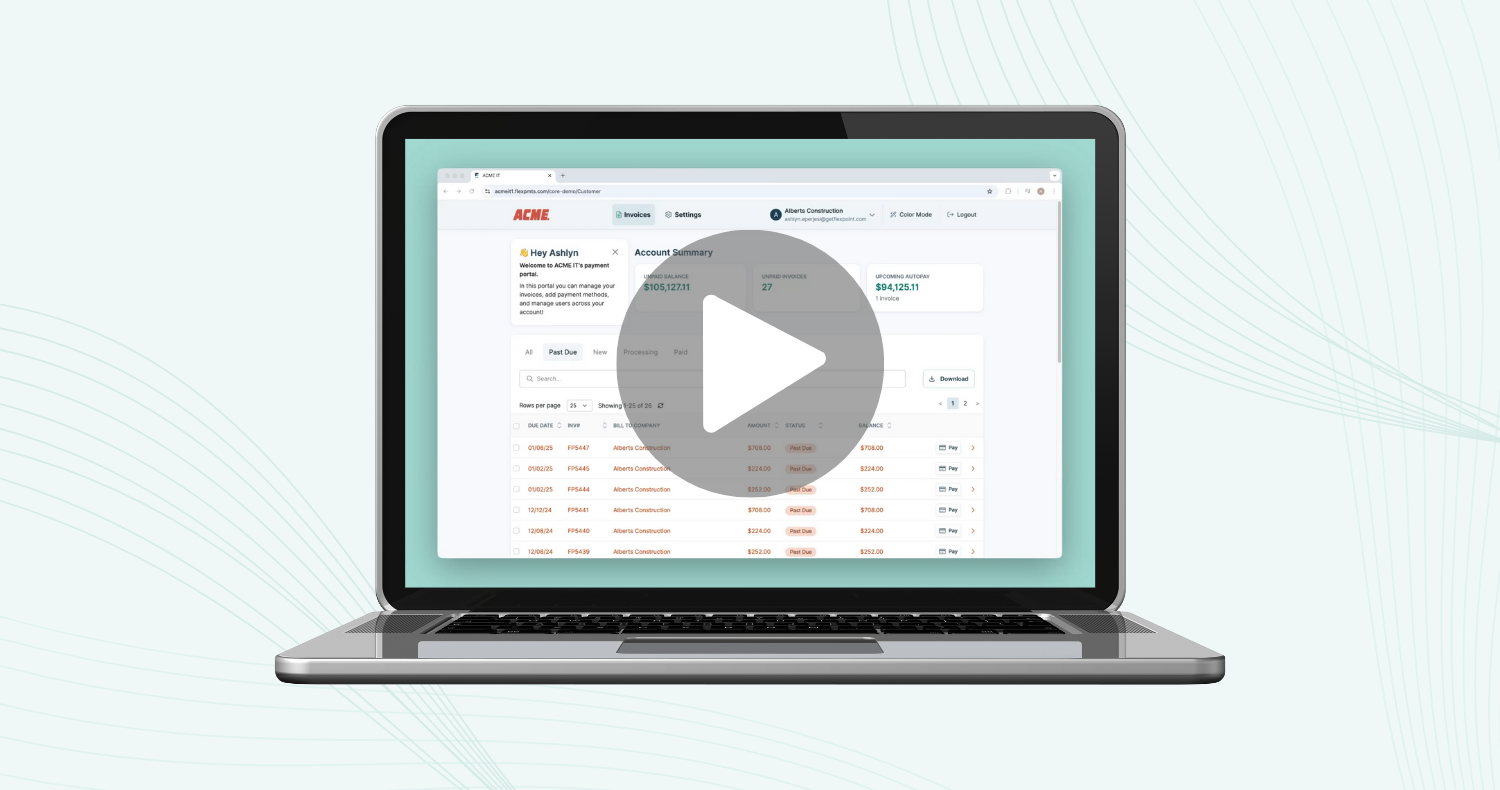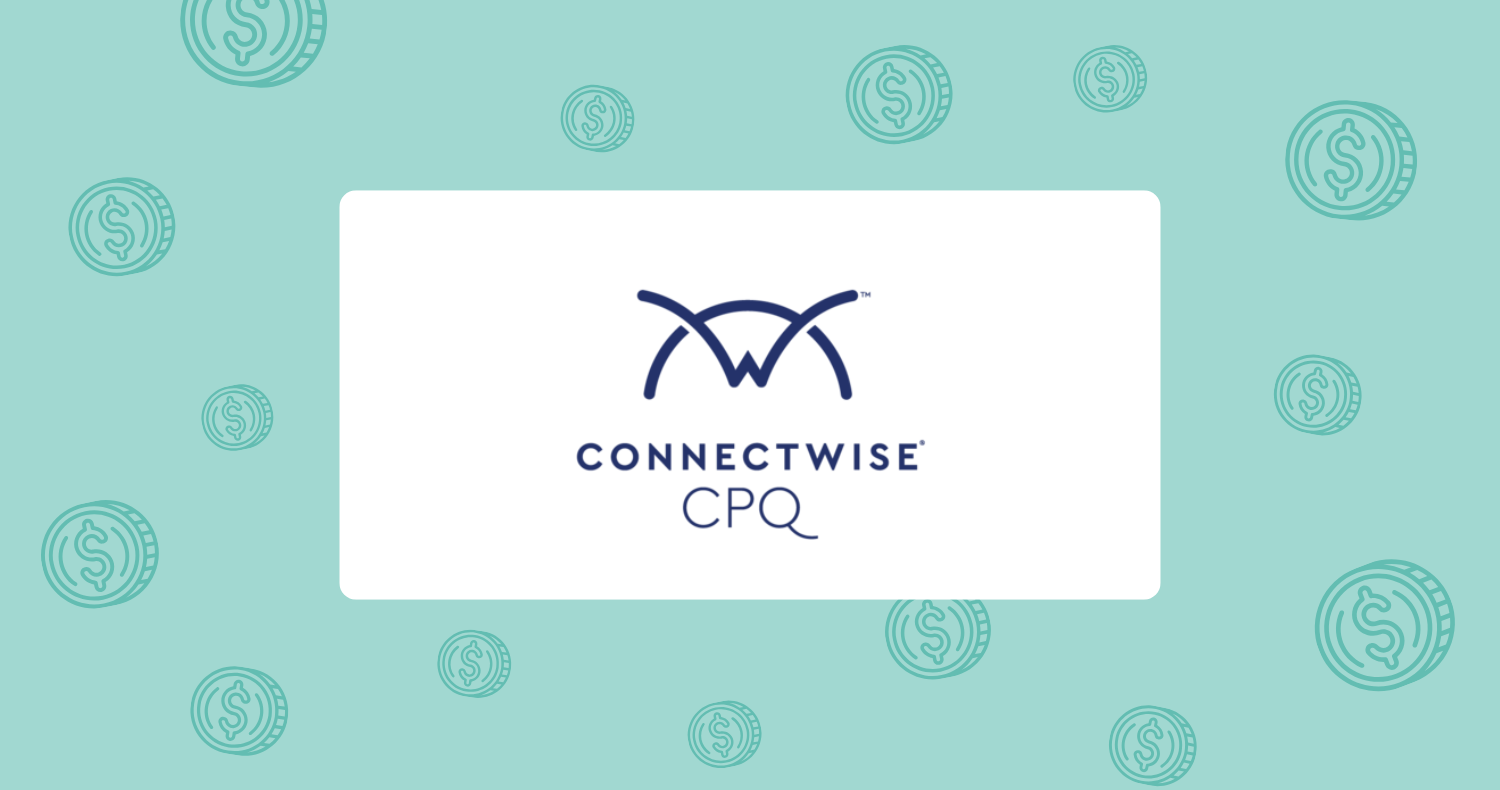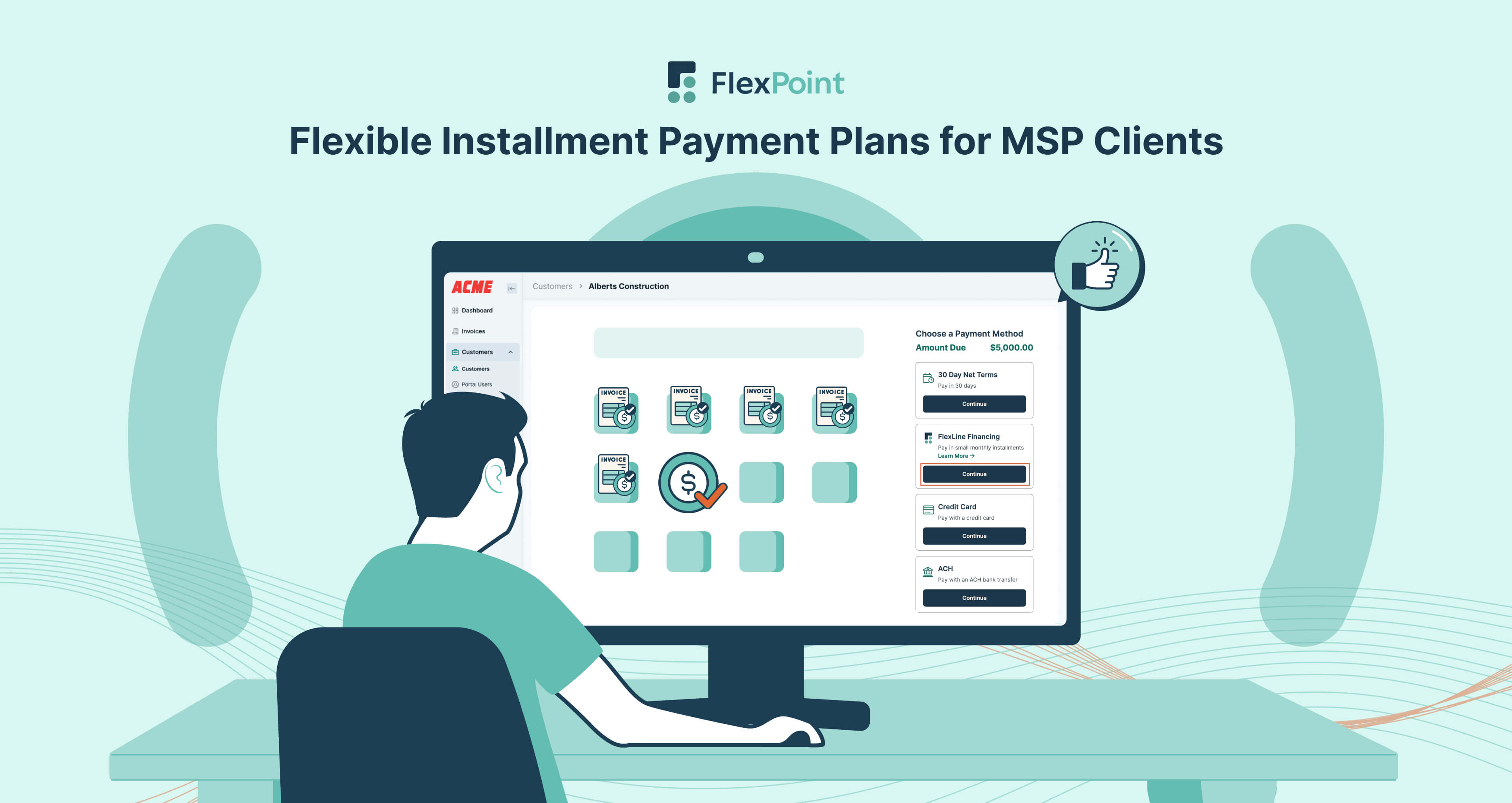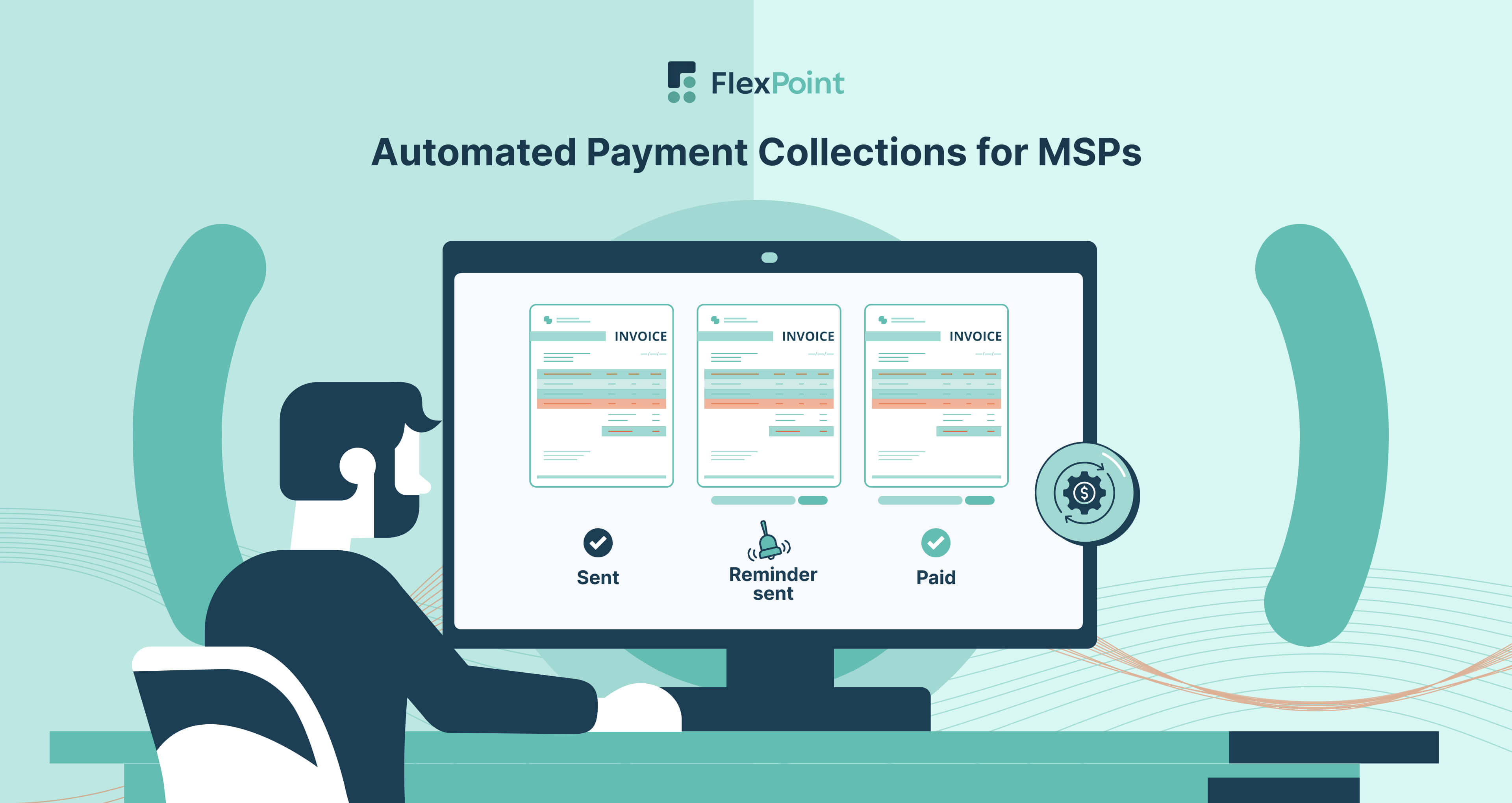MSP PCI Compliance Simplified: Understanding and Achieving Payment Security Standards

According to MSP Insight, over 20 million businesses worldwide are subject to PCI DSS (Payment Card Industry Data Security Standard) regulations, yet Curbstone reported that only 43.7% are fully compliant.
PCI DSS provides a rigorous framework for organizations handling payment data, enforcing strict security measures to protect cardholder information from fraud and unauthorized access.
However, for MSPs that collect digital payments from their clients, achieving PCI compliance is a regulatory mandate and vital in safeguarding client trust and protecting sensitive data.
This article explores PCI DSS requirements, specifically as they apply to MSPs, and provides a comprehensive roadmap for implementing effective compliance measures.
{{toc}}
Understanding PCI Compliance and Its Importance for MSPs

In the MSP industry, demonstrating PCI compliance signals to clients that you prioritize protecting their data and creating a secure transaction environment.
In this section, we’ll explore the significance of PCI compliance for MSPs, detailing how it reinforces data protection efforts, mitigates security risks, and serves as a valuable differentiator in a crowded marketplace.
Data Security
According to a Business Insider Report, 86% of business executives admit that cybersecurity threats, such as weak data security, are concerning.
According to CompTIA, up to 90% of the total costs in a cyberattack occur beneath the surface, including hidden costs like damaged credibility that can affect a business for years after a breach.
Data breaches involving payment information can have severe consequences, leading to significant financial losses and reputational damage for both MSPs and their clients.
Data security is at the heart of PCI DSS compliance, and it plays a crucial role in safeguarding sensitive payment information from breaches, theft, and unauthorized access.
By implementing PCI DSS standards, you can effectively secure your clients' credit card transactions, ensuring that sensitive cardholder data is well-protected against ever-growing threats.
Risk Management
According to Prevalent, the only risk type tracked more in 2024 than in 2023 is cybersecurity risk, at 58%.
Compliance with the PCI DSS provides a framework for identifying, assessing, and mitigating the risks of handling such sensitive information.
PCI DSS outlines a comprehensive set of requirements encompassing various security measures, from network security protocols to data encryption.
By adhering to these standards, you can establish robust defenses against unauthorized access and potential data theft. It reduces the likelihood of costly security breaches.
Client Confidence
According to a Cisco data privacy benchmark study, 30% of professionals believe compliance is the most important factor in gaining client trust.
Adhering to the PCI DSS signifies a strong commitment to safeguarding client information from cyber threats and unauthorized access.
Clients looking for reliable, secure partnerships will naturally gravitate toward MSPs that take data security seriously. They see these providers as service vendors and trusted allies in protecting business and consumer data.
Regulatory Compliance
The Tessian CEO’s Guide to Data Protection and Compliance Report showed that 64% of companies experienced data breaches because they failed to comply with PCI DSS regulations.
Failing to adhere to PCI DSS standards can lead to severe consequences, including fines of up to $500,000 and even suspending transaction privileges enforced by payment card brands and regulatory authorities.
However, the penalties for non-compliance extend beyond fines. It can severely damage an MSP’s reputation and its ability to protect sensitive data.
Clients feel reassured, knowing their information is secure, and they view you as a responsible, proactive partner in data security.
Operational Efficiency
Flywire reports that 27% of companies lose 6 to 10% of their monthly revenue due to inefficient payment processing. This disrupts MSPs' cash flow and adds an extra administrative burden to their teams.
While the primary goal of PCI compliance is to protect sensitive payment card data from unauthorized access, the process often leads to the development of streamlined security practices that can significantly improve daily operations.
You can establish structured and repeatable processes for securely handling payment data by adhering to PCI guidelines.
This helps you to eliminate redundancies, reduce human error, and automate critical security tasks, ultimately boosting efficiency across various departments.
For example, implementing automated monitoring tools as part of PCI compliance gives you greater visibility into their data environments, making it easier to identify and respond to potential security threats swiftly.
Market Differentiation
Following the PCI DSS, you fulfill critical compliance requirements and showcase your security and regulatory adherence commitment.
This dedication especially appeals to MSP clients who pay using their credit cards and are deeply concerned about safeguarding their customers' sensitive payment information.
For MSPs, achieving PCI compliance goes beyond just meeting legal obligations; it is a powerful market differentiator that enhances credibility with potential clients.
When you maintain compliance, you position yourself as a credible partner in data protection, something that can significantly influence a business's choice of service provider in the face of today’s increasing cyber threats.
This commitment to security can be the deciding factor for businesses prioritizing robust data protection measures.
{{ebook-cta}}
7 Key Requirements of PCI DSS for MSPs

To effectively protect cardholder data and ensure PCI DSS compliance, you must adhere to crucial requirements explicitly designed for your role in the payment ecosystem.
These standards cover critical security areas, including implementing secure network architectures, robust data protection protocols, and routine security assessments to identify and address vulnerabilities.
In this section, we’ll explore each of these requirements in detail.
1. Automated Invoicing
According to a report, 86% of small businesses rely on manual invoicing, while 65% of mid-businesses and 22% of enterprise businesses use manual invoices.
However, more than half of enterprise businesses, 65%, use automated invoicing systems, while 27% of mid businesses and 14% of SMEs use automated invoicing.
Automated invoicing systems will streamline billing processes, ensuring timely and accurate payments while also protecting sensitive payment data.
However, to fully secure these systems, you must carefully align them with PCI compliance standards.
A significant risk associated with automated invoicing lies in unauthorized access; without strict access controls, sensitive payment data might be exposed, increasing the chance of a data breach.
Consider an MSP implementing an automated invoicing system to manage billing for numerous clients. While the system enhances efficiency, it also introduces potential vulnerabilities, especially if left unpatched or outdated.
Regularly updating and patching the software helps prevent system weaknesses from becoming cyberattack entry points.
Establishing access controls, encrypting data, and maintaining system updates can safeguard sensitive data and reinforce your commitment to PCI compliance.
A reliable automated invoicing solution includes these compliance and security protocols. This must be a crucial vetting factor for MSPs evaluating payment automation software.
2. Maintaining a Secure Network
According to the Federal Trade Commission, 416,582 reports of card fraud were made in 2023, making it the most common fraud in the U.S.
Also, the Nilson Report indicates that U.S. businesses will lose about $165.1 billion to credit card fraud over the next 10 years.
Having a secure network is very important. It is one of the major requirements of PCI DSS.
Implementing robust firewall configurations that act as the first defense against unauthorized access and cyber threats can help you achieve a secure network.
Firewalls are essential because they control the flow of traffic between trusted internal networks and potentially risky external networks, allowing only approved and legitimate traffic through.
However, network security depends on more than simply having a firewall. Common vulnerabilities arise when firewalls are misconfigured, which can unintentionally expose sensitive data to external threats.
For instance, if firewall rules are overly permissive or not properly aligned with security policies, they may allow unrestricted access to specific ports, making it easier for attackers to exploit weaknesses in applications or systems.
Furthermore, failing to update firewall firmware regularly can expose the network to known vulnerabilities, increasing the risk of a breach.
3. Protecting Cardholder Data
According to a report, 8 out of 10 credit cards in circulation have been compromised through hacking or data breaches.
Encryption can protect cardholder data from unauthorized access and potential theft. It is an essential step in today’s highly interconnected digital landscape.
However, to maintain this protection, you must be vigilant about common vulnerabilities that could put cardholder data at risk.
For example, weak or outdated encryption protocols can expose information, particularly during transmission over unsecured Wi-Fi networks.
Similarly, failing to use robust encryption algorithms for stored data heightens the risk of breaches if attackers gain access to databases.
Other threats include outdated software or hardware lacking necessary security patches, which cybercriminals could exploit to reach sensitive data.
It’s crucial to understand that PCI compliance isn’t a one-time checklist item but an ongoing commitment to security.
4. Managing Vulnerabilities
According to a report, there is a cyber attack every 39 seconds; that is about 2200 attacks each day. This equates to about 800,000 cyber attacks in a year.
Also, about half of small businesses experienced cyber attacks in 2022.
Vulnerability management involves much more than simply running antivirus software; it requires consistent, proactive measures to secure systems and applications against emerging threats.
By regularly updating and patching operating systems, applications, and security tools, MSPs can close off exploitable gaps that cybercriminals could use to infiltrate networks.
Critical vulnerabilities you must address include outdated software, which leaves systems susceptible to malware and ransomware, and inadequate network segmentation, which can expose sensitive data to unauthorized users.
Additionally, if custom applications are part of an MSP’s service, insecure coding practices can i
5. Access Control Measures
A critical access control component is assigning unique user credentials to every employee, which provides a clear trail of accountability and enables precise activity monitoring.
If a security incident occurs, these unique IDs allow you to quickly trace and address potential vulnerabilities by identifying precisely who accessed sensitive data and when. This traceability level is valuable for compliance and essential for responding to security threats effectively.
Despite these measures, you can face challenges that weaken your access control, such as weak password policies, insufficient authentication protocols, and infrequent user access reviews.
For example, shared accounts or lax password standards increase the risk of unauthorized access, while neglecting to update user permissions could leave former employees or contractors with access to sensitive data, introducing severe security risks.
It’s essential to recognize that access control for PCI compliance isn’t a one-time setup but an ongoing commitment.
You must routinely assess and refine their access protocols to stay aligned with regulatory updates and evolving security threats.
6. Monitoring and Testing Networks
Regular vigilance is essential for safeguarding cardholder data. It involves regular assessments of network security controls, thorough testing of protective measures, and real-time monitoring of access to network resources.
By maintaining a watchful eye, you can quickly identify vulnerabilities, detect unauthorized access, and ensure that all security measures operate as intended.
Regularly testing security systems and continuously monitoring access to network resources makes it easy to identify potential vulnerabilities, unauthorized access attempts, or other security threats quickly.
For example, an MSP could use intrusion detection systems (IDS) to flag any unusual network activity while simultaneously conducting vulnerability scans to identify weak points.
7. Information Security Policy
In a recent Gartner survey, 80% of organizations said they plan to increase their spending on information security in 2024.
Data theft was a factor in 19% of all incidents, highlighting the rising concern about information security.
With well-defined guidelines, you can significantly reduce risks linked to human error and bolster your overall security posture.
This policy is the backbone of an organization's efforts to safeguard cardholder data by clearly outlining the protocols and responsibilities of everyone involved in handling that sensitive information.
An effective information security policy addresses common vulnerabilities that could jeopardize client data.
For example, inadequate access controls might allow unauthorized personnel to view sensitive payment information, heightening the risk of data breaches.
Moreover, without strong password management practices, sensitive data could become easily accessible.
Employee training also plays a critical role; if staff members are not educated to recognize phishing attempts and other social engineering tactics, they may inadvertently compromise sensitive information.
Therefore, a comprehensive policy must include user access management, incident response procedures, and regular training initiatives. These elements ensure that all employees understand their security responsibilities and how to act in the face of potential threats.
5 Proven Strategies for Ensuring PCI Compliance in MSP Payment Operations

There are different ways you can ensure PCI compliance in your operations.
This section will discuss these strategies in greater depth, exploring how each approach supports a compliant, secure environment.
1. Automated Invoicing
With an automated invoicing system, you can reduce manual errors, simplify payment collection, and handle sensitive payment data more securely.
This cuts down administrative tasks and ensures that invoices are accurate and delivered on time, which is essential for building strong client relationships.
Automated invoicing technologies and third-party services, like FlexPoint’s automated payment solutions, can make PCI compliance much easier to manage.
FlexPoint’s compliance-focused design safeguards cardholder data, allowing you to meet PCI requirements effectively.
2. Automated Security Measures
By implementing automated tools for data encryption and secure transmission, you can protect payment transactions consistently and efficiently, minimizing the need for manual oversight.
These automated systems help reduce human error, which is often a key contributor to data breaches and establish a strong defense against unauthorized access to sensitive information.
You can streamline compliance efforts and enhance security protocols with advanced technologies and specialized third-party services.
Automated encryption solutions, for example, safeguard cardholder data at rest and during transmission, ensuring that sensitive information is protected throughout its lifecycle.
3. Integrated Compliance Solutions
One of the most effective ways to simplify this is by using integrated payment software that builds PCI standards directly into its payment processing features.
This approach makes compliance a seamless part of the payment process, allowing you to focus on your primary services while meeting data security standards without added complexity.
These integrated payment solutions provide more than just payment processing. It enforces essential security protocols like encryption, tokenization, and secure authentication, which are crucial to PCI DSS compliance.
For example, FlexPoint’s automated payment solutions help you streamline PCI compliance.
This platform enhances the efficiency of payment processing and integrates PCI compliance features into every transaction, automating the security checks and reporting necessary for regulatory standards.
By adopting such technology, you can reduce the time and effort typically required for compliance management.
4. Periodic Compliance Audits
Regular compliance audits are essential for MSPs to maintain a systematic approach to evaluating security practices and ensuring ongoing compliance.
Reporting tools can help you gain valuable insights into your current security position, identifying potential gaps or vulnerabilities before they escalate.
Regular audits ensure that your MSP meets industry standards.
You can also assess the effectiveness of existing security measures, make informed adjustments, and stay ahead of evolving compliance requirements.
This helps minimize risks and strengthens your ability to protect client data and maintain trust.
5. Educational Resources and Support
A training strategy that combines educational resources, expert support, and intelligent technology can make PCI compliance more manageable and effective, helping you protect cardholder data confidently.
Access to up-to-date resources like training programs and industry publications will equip your team with the insights they need to strengthen your security protocols and remain ahead of evolving compliance demands.
These educational tools empower your teams to understand the regulatory environment, improving readiness and response to security challenges.
In addition to providing your internal team education, consulting with third-party compliance experts can be invaluable. Specialists in PCI compliance can help you identify gaps in your processes and suggest practical adjustments to align with current regulations.
This expert guidance also helps you adapt quickly to regulatory updates, giving you a reliable foundation for compliance and peace of mind.
Conclusion: Streamlining Compliance with FlexPoint
This article discussed strategies for MSPs to achieve and maintain PCI DSS compliance, focusing on practices like automated invoicing, secure data management, and regular audits.
It also emphasized the importance of PCI compliance for legal adherence, client trust, and operational efficiency in a competitive market.
However, achieving PCI compliance might be challenging for you.
Flexpoint is specifically designed to help MSPs like you address this issue.
With advanced security features built into our automated payment solutions, you can streamline their compliance processes while enhancing the protection of client data.
Flexpoint has built-in features that simplify the complexities of PCI requirements, allowing you to focus on delivering exceptional services without compromising security.

Secure your MSP operations with FlexPoint’s automated payment solutions to help you achieve and maintain PCI compliance.
Discover how our advanced security features can protect your client data and enhance your business reputation.
Visit our website or contact us today for more information and a guided demo.
Additional FAQs: PCI Compliance in MSPs
{{faq-section}}











.avif)